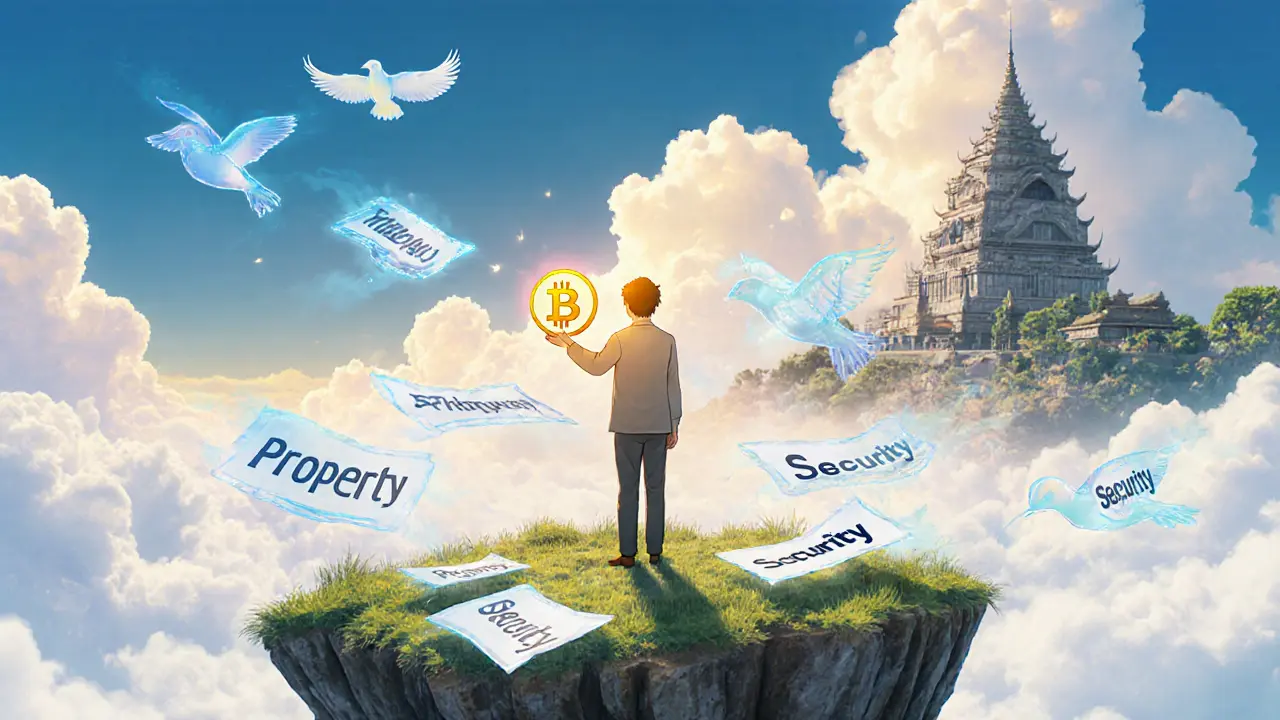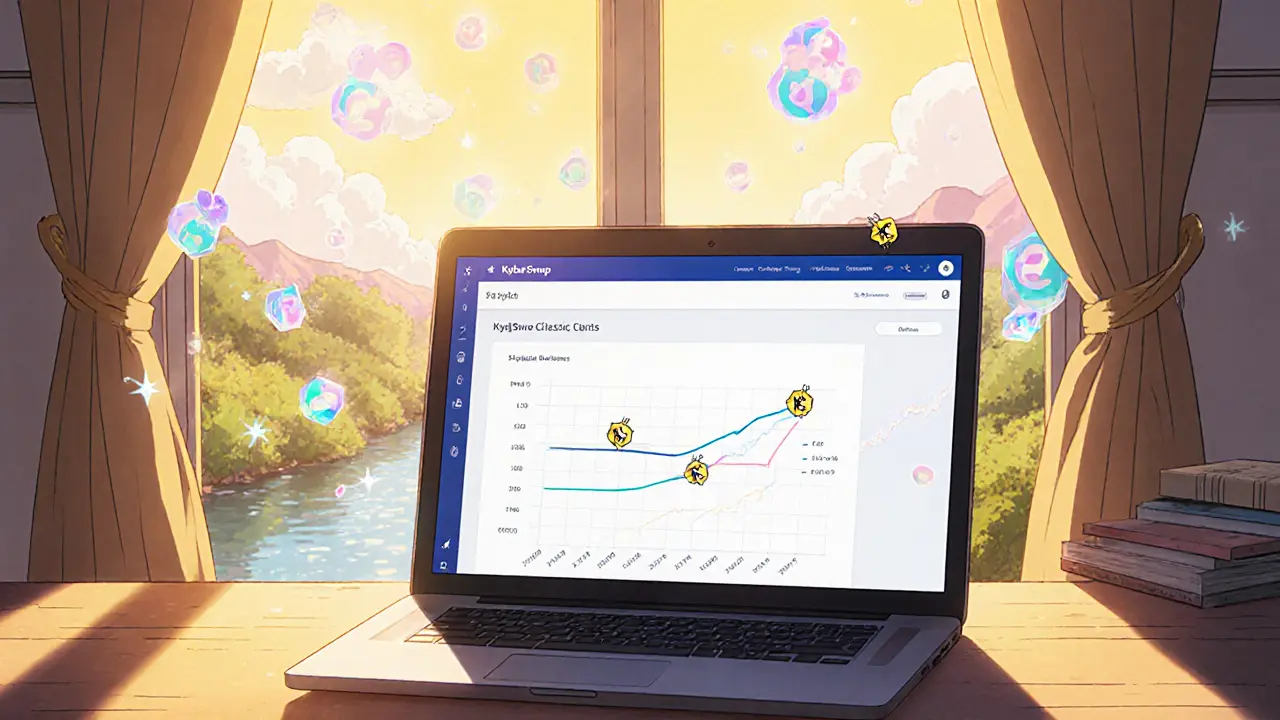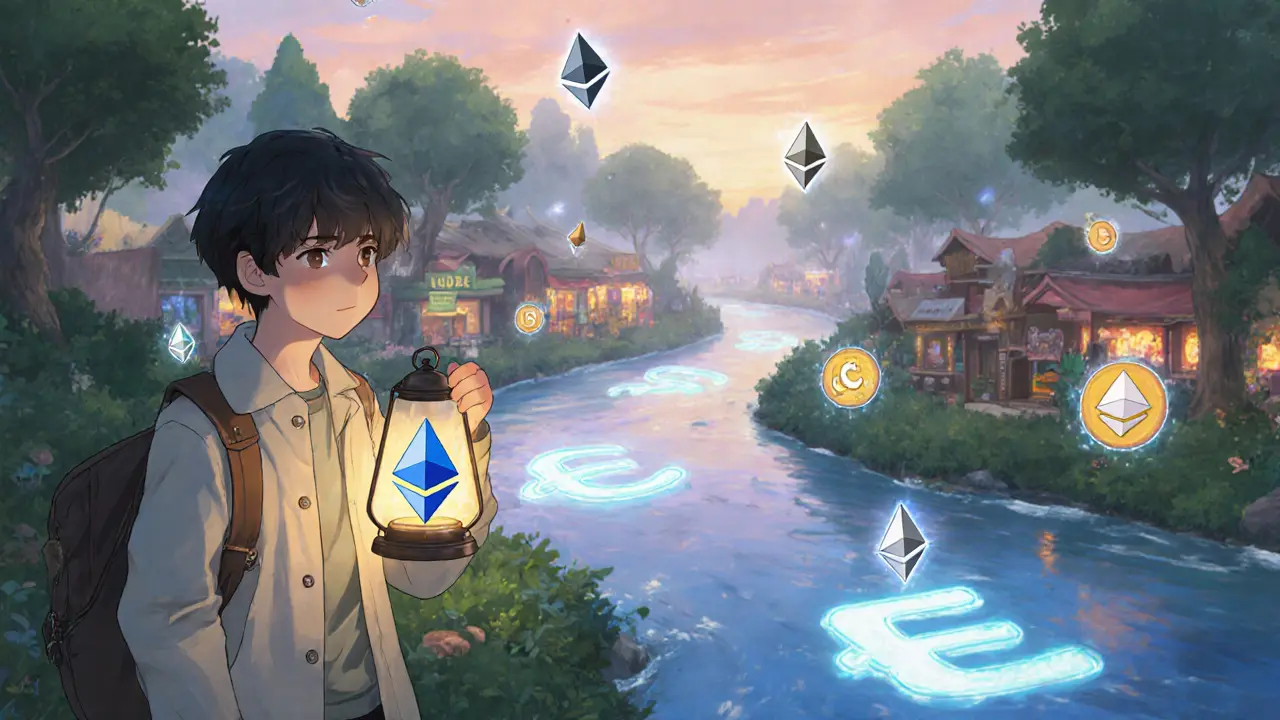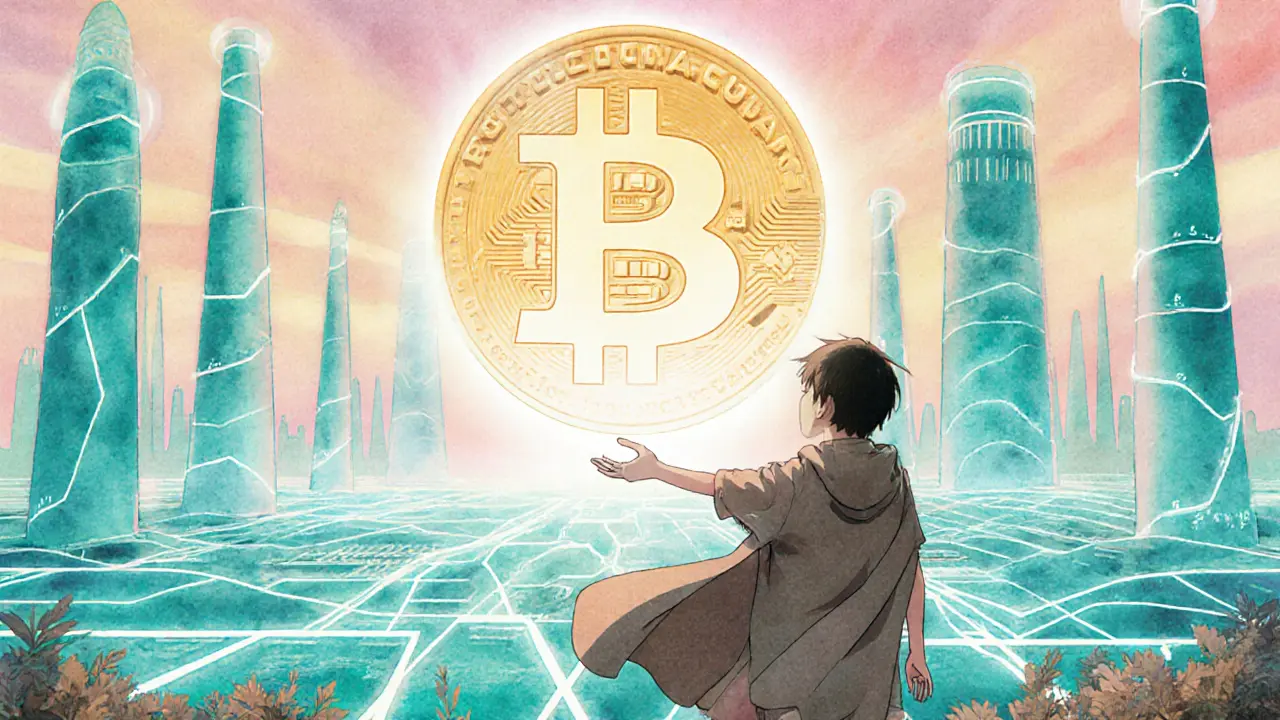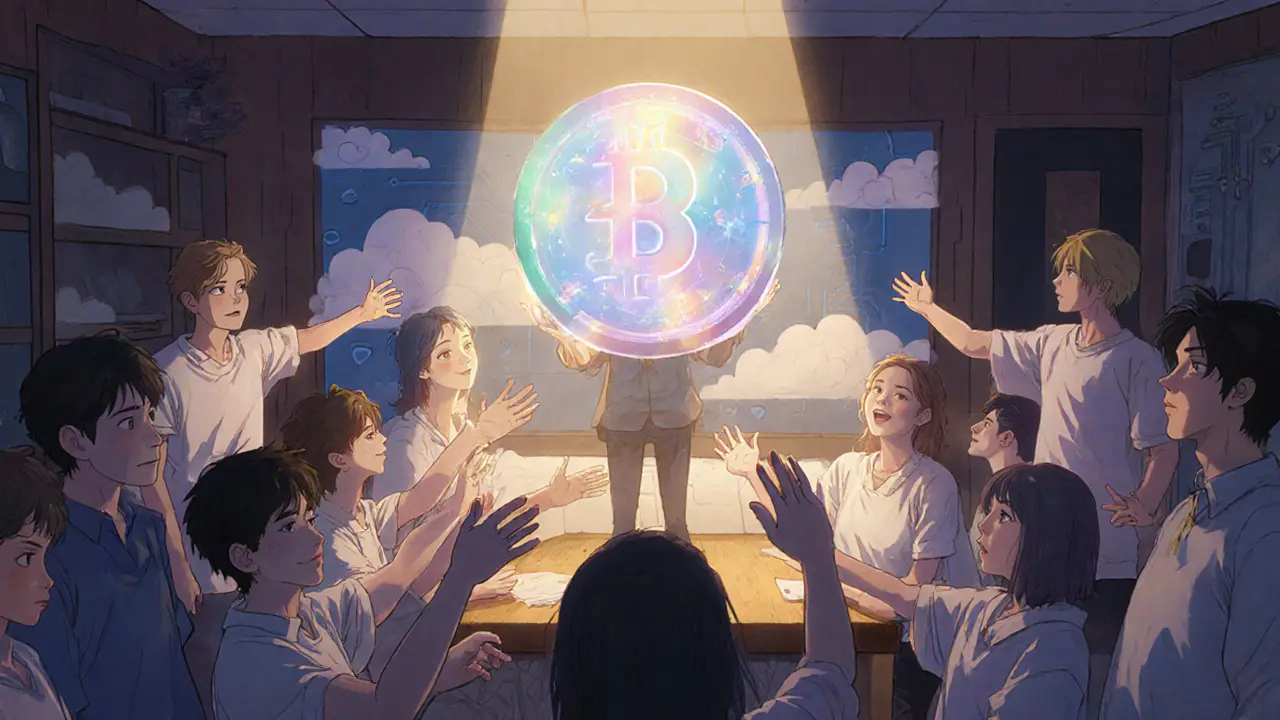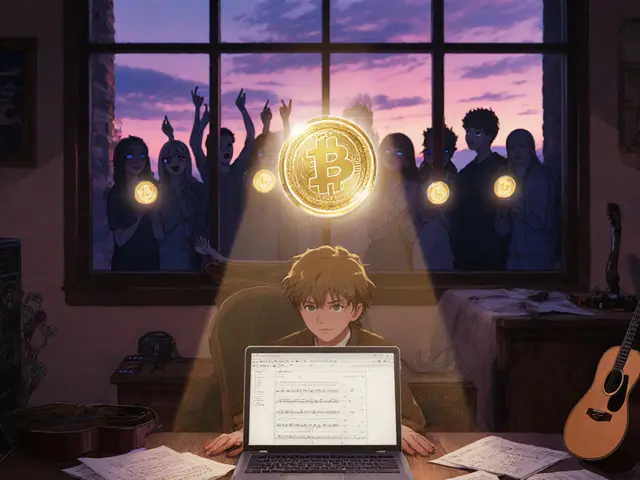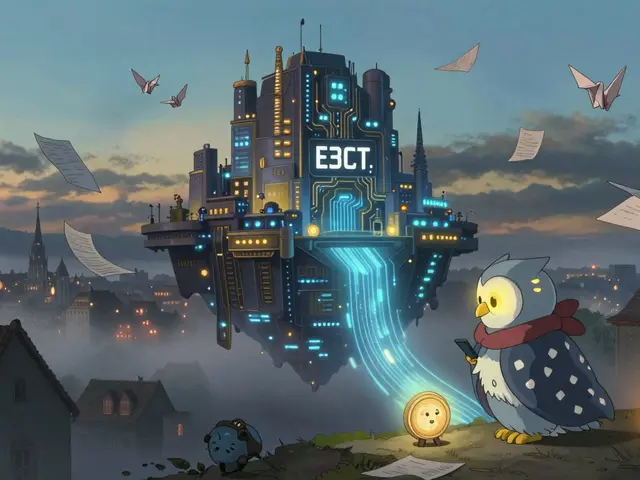October 2025 Crypto and Blockchain Trends: Regulations, Exchanges, and Airdrops
When it comes to crypto regulations, the legal framework governments apply to digital assets like Bitcoin, Ethereum, and tokens. Also known as cryptocurrency laws, it is the invisible hand shaping who can trade, where, and under what rules. In October 2025, this hand got heavier. Saudi Arabia moved closer to formalizing its crypto rules under Vision 2030, while the EU tightened compliance around MiCA and CARF. Meanwhile, India kept its banned exchange list updated, and courts in the U.S. and Australia kept disagreeing on whether crypto is property or a security. These aren’t just policy changes—they’re survival signals for anyone holding or trading digital assets.
Behind the headlines, decentralized exchanges, platforms that let users trade crypto without a middleman, relying on smart contracts instead of centralized servers. Also known as DEXs, they are where most real trading activity happens now became the focus of deep, no-BS reviews. WardenSwap, BB EXCHANGE, and Websea all showed up with big promises but zero transparency. Others like KyberSwap on Optimism and Velodrome Finance got real analysis—fees, liquidity, security flaws, and all. These aren’t theoretical debates. People lost money last month because they trusted a DEX with no audits and no trading volume. The difference between a working DEX and a ghost platform? One has users. The other has only marketing.
Then there’s the crypto airdrops, free token distributions meant to bootstrap new projects, often tied to wallet activity or community participation. Also known as token giveaways, they’re the modern-day lottery—but most tickets are fake. SIL Finance and ByteNext offered clear claim steps. Zerogoki’s REI token? Nothing. PureVidz? Dead. ATLAZ? A Solana micro-cap with no utility and a shaky roadmap. October’s airdrop data didn’t just list opportunities—it exposed scams hiding behind buzzwords. If you didn’t check the token’s contract, the team’s history, or the exchange listing, you were already behind.
What You’ll Find in This Archive
This collection doesn’t just report trends—it shows you what actually happened. You’ll find how Iran uses Bitcoin mining to dodge sanctions, how blockchain stops fake drugs from reaching pharmacies, and why a meme coin named VoldemortTrumpRobotnik-10Neko exists (and why you shouldn’t touch it). There are reviews of exchanges that sound too good to be true—and yes, they are. There are guides on HODLing smart, understanding tax rules under CRS 2.0, and navigating social tokens in Web3. No fluff. No hype. Just what you need to know before you click ‘buy’ or ‘claim’ next time.
31
Blockchain Prescription Drug Tracking: How It Stops Counterfeits and Saves Lives
Blockchain prescription drug tracking uses secure, tamper-proof ledgers to trace every step of a medication’s journey-from factory to patient-blocking counterfeit drugs and reducing abuse. Real-world pilots like BRUINchain show it works.
29
How Courts Are Treating Crypto Assets: Property, Securities, and Jurisdictional Battles in 2025
Courts around the world are deciding whether crypto is property, a security, or something new. Australia recognizes it as property. U.S. courts focus on exchange type and securities law. Jurisdictional battles and SEC pressure are shaping the future.
28
Saudi Crypto Regulation Development and Future: What’s Legal, What’s Coming in 2025
Saudi Arabia's crypto rules are changing fast in 2025. While individuals can trade crypto, banks are restricted. New regulations are coming, CBDC testing is underway, and blockchain innovation is booming under Vision 2030.
27
WardenSwap Crypto Exchange Review: Is This Decentralized Exchange Worth Your Crypto?
WardenSwap claims to offer the best crypto swap rates across multiple blockchains, but with zero user reviews, no security audits, and no trading volume, it's a high-risk gamble. Here's why you should avoid it.
26
PureVidz (VIDZ) Crypto Coin Explained - What It Is, History & Current Status
PureVidz (VIDZ) is a defunct crypto token from the 2017‑2018 ICO boom. This guide explains its claimed purpose, market data, why it vanished, and how to spot similar ghost tokens.
25
KyberSwap Classic on Optimism: In‑Depth Crypto Exchange Review
A thorough review of KyberSwap Classic on Optimism covering fees, liquidity, security, user experience, and how it compares to other Optimism DEXs.
24
PancakeSwap v3 on Ethereum: In‑Depth Crypto Exchange Review
A comprehensive review of PancakeSwap v3 on Ethereum covering features, fees, liquidity options, security, and how it stacks up against Uniswap and BSC versions.
23
BB EXCHANGE Review: Is This Crypto Exchange Legit or a Mystery?
An in‑depth BB EXCHANGE review that uncovers the lack of public data, assesses the 6% yield claim, and provides a clear checklist for evaluating unknown crypto platforms.
22
Velodrome Finance (VELO) Explained: How the Optimism DEX Works
Discover what Velodrome Finance (VELO) is, how its Optimism‑based DEX works, and why its ve(3,3) tokenomics and bribe system set it apart in DeFi.
22
Sushiswap on Arbitrum Nova: A Realistic Review of Trading Risks and Rewards
Sushiswap on Arbitrum Nova offers near-zero transaction fees but suffers from extremely thin liquidity. With only 6 tokens and inconsistent trading volumes, it's best for micro-transactions only-not for significant trades.
21
What is ATLAZ (AAZ) Crypto Coin? Explained
ATLAZ (AAZ) is a Solana‑based micro‑cap token promising data exchange. Learn its roadmap, price quirks, risks, and why experts warn against investing.
20
Social Tokens and Creator Rewards: How Web3 Empowers Creators
Explore how social tokens let creators monetize, engage fans, and build token‑gated communities while navigating blockchain and regulatory challenges.
Latest Posts
Popular Posts
Tags
- decentralized exchange
- crypto exchange
- crypto exchange review
- cryptocurrency
- crypto airdrop 2025
- CoinMarketCap airdrop
- blockchain
- meme cryptocurrency
- GENIUS Act
- cryptocurrency compliance
- crypto airdrop
- crypto exchange compliance
- meme coin
- crypto trading
- fake crypto exchange
- Solana meme coin
- cryptocurrency valuation
- Binance Smart Chain
- underground crypto Nepal
- crypto airdrop guide
